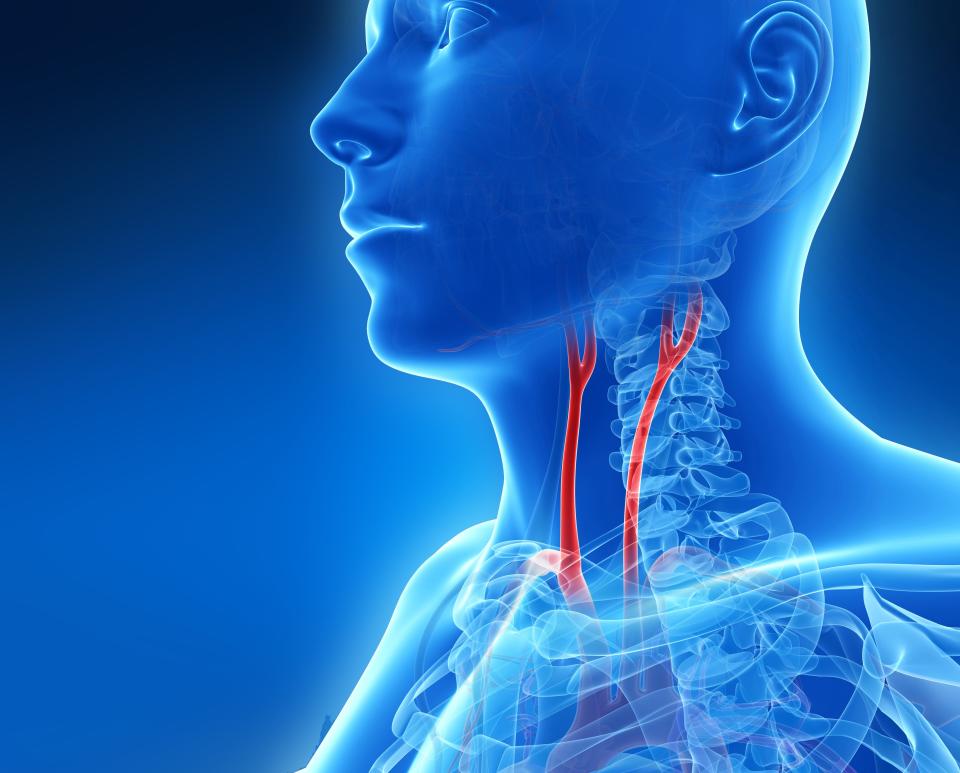How much calcium do you really need? 4 things to know about getting enough in your diet

In several previous columns, I have written about Coronary Calcium Scans, which detect the amount of calcium present in coronary arteries that deliver oxygen and nutrients to the heart. This test is gradually gaining acceptance and moving into mainstream medicine. My friend, preventive cardiologist Dr. Henry Sadlo, has been a champion of this test and knows first-hand how it can save lives.
The test is based on the fact that although atherosclerotic plaques of cholesterol and other debris are mushy at first, they gradually calcify and "harden" over time. Calcification is a good news / bad news story. Mushy plaques are dangerous because they can rupture, dumping clumps into the bloodstream that could lodge in narrowed arteries, blocking all blood flow downstream. This is much less likely to happen to calcified plaques, and that’s the good news.
The bad news is, while mushy plaques can be reversed, calcified plaques remain intact.
What does a Coronary Calcium Scan measure?

A CCS quantifies the amount of calcium found in the coronary arteries, providing a score. Part of the reason why the CCS has not as yet been more widely adopted by the medical community is that it doesn’t detect plaques that are still in the “mushy” stage. Thus, a score of zero could disguise the fact that there is considerable mushy plaque, creating a false sense that all is well in the coronary arteries. On the other hand, a reason why the CCS is so valuable is that a high score is a huge red flag that the coronary arteries may be in trouble even though there are no symptoms, and additional sophisticated testing is needed.
In response to these CCS columns, I often hear from readers who are confused about the role of calcium in the body and worry that too much dietary calcium intake may promote an increase in calcified plaque. If so, is it a good idea to lower your intake of dietary calcium? The answer is no for several reasons.
Why is calcium important for the body?

Calcium is not only the most plentiful mineral in the human body, it is one of the most important. Everyone is aware that calcium is stored in bones and is responsible for the "hardness" and strength of bone, but calcium does so much more. It is essential for the proper functioning of muscles — in fact, it is the release of calcium within a muscle fiber that initiates the contraction process. Calcium is also important for the compliance of blood vessels (ability to expand and contract), so important for regulating blood pressure, and calcium is vital for the proper functioning of nerves.
Because calcium plays such a significant role in so many bodily functions, it is tightly regulated. Certain hormones move calcium into storage when there is an excess in the bloodstream, while other hormones release calcium from storage in bones when there is not an adequate supply.
When you are young, you should be consuming lots of calcium, increasing the amount stored in bones. This is important because later in life as calcium intake declines, calcium is taken out of storage to meet the many daily needs of the body. When too much calcium is removed from bones, the bones weaken and are vulnerable to breaking, a condition known as osteoporosis.
In contrast, if there is ample calcium stored in the bones at a young age, there is enough to allow release from storage in the latter years without causing a problem. This is a prime example of how what you do in your younger years can dictate how well you do when you get older.
How much calcium do you need?

The recommended daily allowance for calcium varies with age, but 1,000 to 1,200 mg is typically recommended for adults. In addition, calcium uptake by the body is influenced by vitamins, and especially vitamin D, so be sure your vitamin D needs are covered.
It is very important to again emphasize that adequate dietary intake of calcium is crucial to the proper functioning of the body, and it would be detrimental to cut back on calcium due to fear that it may be harmful to the arteries. Among other problems that could arise, cutting back may cause an earlier depletion of stored calcium in the bones with a premature onset of osteoporosis.
So, not only should you not decrease dietary calcium consumption in an attempt to avoid arterial calcification, but don’t lower intake for other reasons, like seeking to avoid kidney stones. On the contrary, the DASH-style diet, a diet rich in calcium, magnesium, and potassium to help lower blood pressure, has been found to reduce the odds of developing kidney stones.
Should you take calcium supplements?
Some research suggests that because supplements can cause a high concentration of calcium in the bloodstream due to an excessive amount of calcium entering the blood all at once, it potentially could be a factor in artery calcification. More research is needed, and this is much different from the gradual increase and lower concentration of calcium associated with dietary intake.
In summary, the dietary intake of calcium does not appear to determine the amount that finds its way into the arterial walls. To be safe, keep two points in mind. One, unless you are advised by your doctor to take additional calcium, do not exceed the recommended daily allowance. And two, if you take supplements, split them up into smaller doses of calcium that are taken four to six hours apart.
Reach Bryant Stamford, a professor of kinesiology and integrative physiology at Hanover College, at stamford@hanover.edu.
This article originally appeared on Louisville Courier Journal: How much calcium do you really need? 4 things to know about your diet
